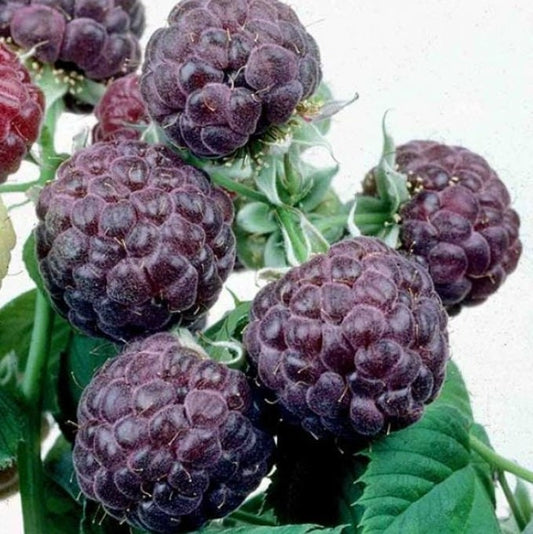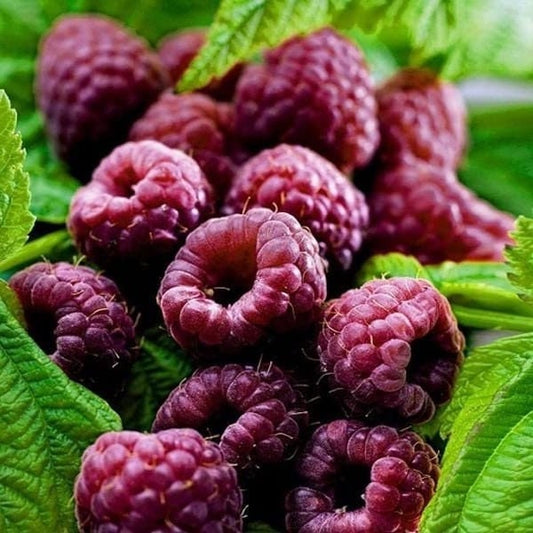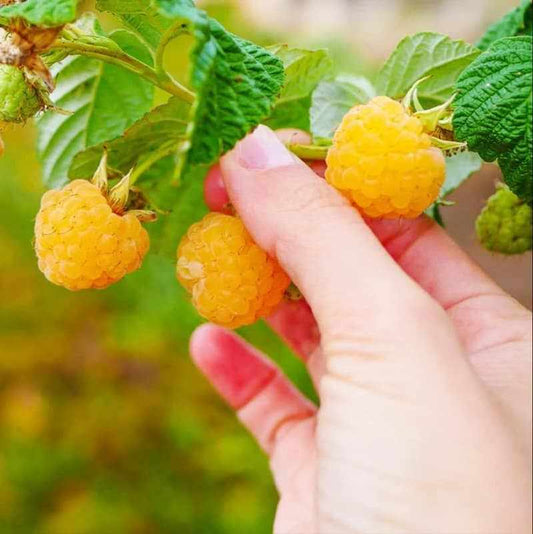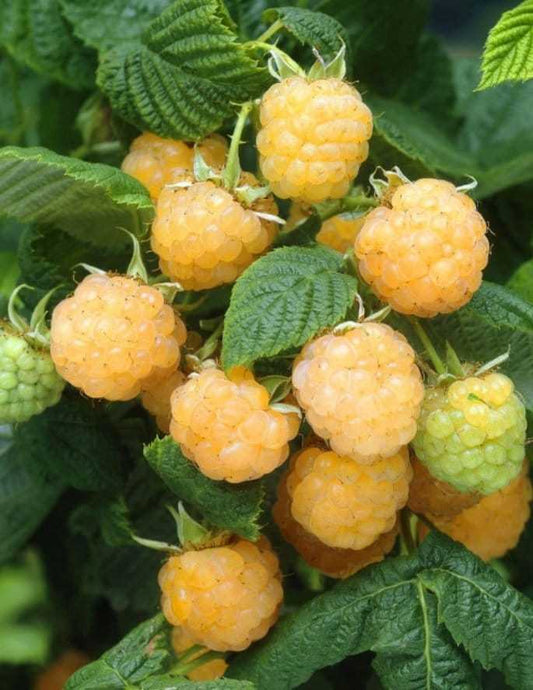Golden Harvests: Growing Fallgold Raspberries in Your Garden
Fallgold raspberries, distinguished by their unique golden-yellow berries, are a delightful alternative to the more common red raspberry varieties. Known for their sweet, flavorful fruit and attractive appearance, Fallgold raspberries offer gardeners the opportunity to diversify their berry patches and enjoy fresh raspberries with a twist. This everbearing variety produces fruit on both old and new wood, extending the harvest season from summer into fall. Whether you're a seasoned gardener or a beginner eager to try your hand at berry cultivation, this guide will walk you through the essentials of growing Fallgold raspberries, ensuring a bountiful and tasty harvest.
Understanding Fallgold Raspberries
Fallgold raspberries are a versatile and hardy variety that thrives in a range of climates, suitable for USDA zones 4-9. These raspberries are known not only for their unique color and exceptional sweetness but also for their ability to bear fruit twice in a season—once in mid-summer and again in early fall. This everbearing nature makes Fallgold an excellent choice for gardeners looking to maximize their yield over an extended period.
Selecting the Right Location
1. Sunlight Needs: Fallgold raspberries perform best in full sun but can tolerate partial shade. However, plants in full sun typically produce more fruit and have better overall health.
2. Soil Requirements: Like most raspberries, Fallgold prefers well-draining, fertile soil with a slightly acidic pH (5.5-6.5). Preparing your garden with rich organic matter or well-rotted compost before planting can significantly enhance soil quality and support vigorous plant growth.
Planting Fallgold Raspberries
1. Best Time to Plant: The ideal time to plant Fallgold raspberries is early spring or late fall. Planting during cooler weather allows the roots to establish without the stress of high summer temperatures.
2. Planting Method: Dig a hole twice as wide and just as deep as the root system of the plant. Space plants about 2-3 feet apart to accommodate their growth and ensure adequate air circulation. Mix some compost or aged manure into the soil to enrich it, place the plant in the hole, and fill it in. Water thoroughly after planting to settle the soil around the roots.
Care and Maintenance
1. Watering: Consistent moisture is crucial for raspberry plants, especially during fruit set and as fruits mature. Water deeply at least once a week, more frequently during hot, dry periods.
2. Mulching: Apply a layer of organic mulch such as straw, wood chips, or pine needles around the plants to help retain soil moisture, suppress weeds, and add nutrients as it decomposes.
3. Fertilization: Feed Fallgold raspberries with a balanced fertilizer in early spring as new growth appears. A second feeding may be beneficial after the first harvest to support the second fruiting period.
4. Pruning: For Fallgold raspberries, prune any dead or damaged canes in late winter or early spring. After the summer harvest, prune canes that have borne fruit, leaving new canes to produce the fall crop.
Harvesting Fallgold Raspberries
Fallgold raspberries are ready to harvest when they easily come off the stem and have a deep, golden color, typically starting in mid-summer and again in early fall. Regular harvesting encourages the plant to produce more berries and extends the harvesting season.
Overcoming Challenges
Fallgold raspberries are relatively hardy but can still be susceptible to pests and diseases common to raspberries, such as spider mites and fungal infections. Implementing proper garden hygiene, ensuring good air circulation around plants, and using appropriate pest and disease management strategies can help maintain a healthy crop.
Conclusion
Growing Fallgold raspberries can be incredibly rewarding, offering a visually stunning and tasty addition to any garden. By providing these plants with the right care and conditions, you can enjoy a prolonged season of delicious, golden-yellow raspberries, perfect for fresh eating, desserts, or preserves. Whether expanding an existing raspberry collection or starting new, Fallgold raspberries bring a unique and flavorful twist to your home gardening efforts.



